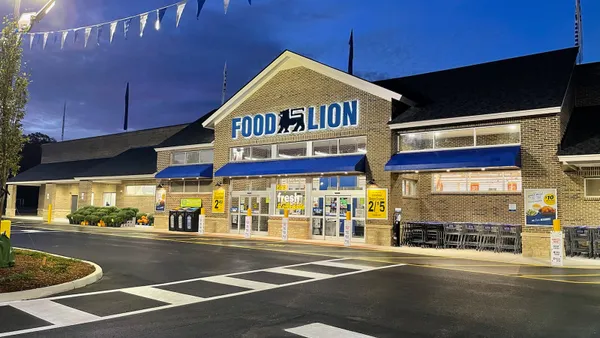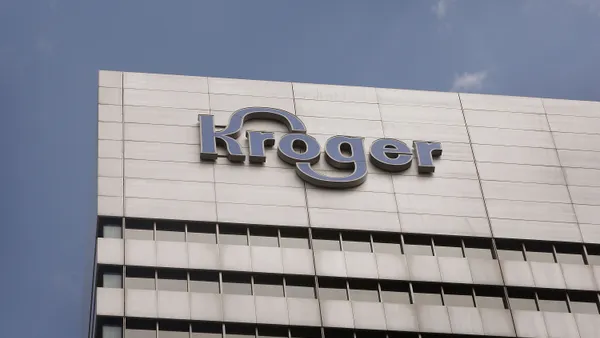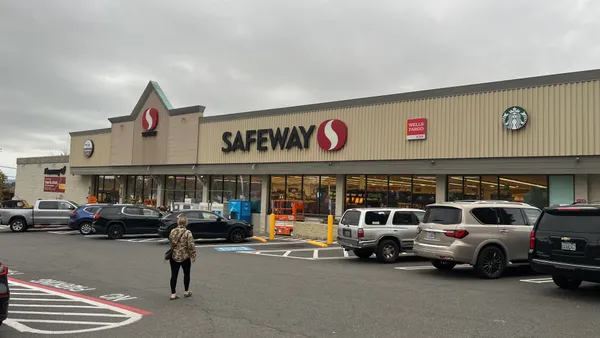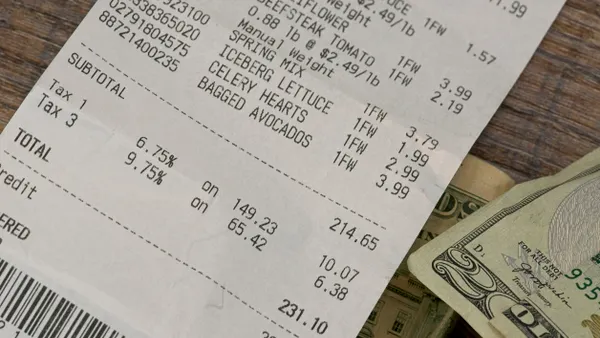Dive Brief:
- Publix's Q2 sales climbed 4% to $8.8 billion year-over-year and same store sales increased 1.7%. The company estimates that its sales were 1.2% lower due to a calendar shift that moved the Easter holiday from Q2 to Q1.
- The company’s net earnings rose 24.5% to $616.2 million and earnings per share increased $0.84 per share from $0.65 per share in 2017. It credits these increases to federal income tax cuts and a new accounting standard measuring equity securities.
- The grocer currently operates 1,190 stores in Florida, Georgia, Alabama, Tennessee, South Carolina, North Carolina and Virginia. Since May 1, Publix has opened eight new stores.
Dive Insight:
The Florida-based grocer has been able to maintain — and even capitalize — on its grocer-next-door persona while making moves to expand, innovate and create new partnerships, which helped the company record its second consecutive quarter of positive earnings.
One cost-saving strategy Publix has used recently is buying many of its stores without accruing debt. The company has purchased entire shopping centers where its stores are located to bring in rental income from other tenants and have full control over neighboring stores. Publix's store ownership increased from 11.2% in 2007 to 31.8% at the end of 2017. These real estate moves also allow the grocer to receive a tax break in Florida and avoid paying sales tax from rent.
Its growth plans go beyond scooping up shopping centers. Earlier this year, the grocer announced it would spend $1.5 billion to expand and create a stronger foothold in the Mid-Atlantic region, building new stores, as well as using some of that money to remodel old ones.
Despite some typical corporate moves, Publix has kept to its brand of providing excellent, personalized customer service with a small-town feel. A survey from 2017 reported that across 20 industries, Publix received the highest customer experience rating. The company is often touted for going above and beyond to make shopping seamless and enjoyable, with employees greeting customers as they walk into the stores and providing help carrying bags to their cars, with a “no tipping” policy. The company has also expanded its complimentary valet parking service, which is currently only available in Palm Beach and Boca Raton stores. This will only add to the grocer known for its Southern hospitality. Keeping customers happy just intensifies the retailer’s cult-like following and pushes up sales — giving the grocer additional money to continue investing in more stores.
The local grocer persona also transfers to its business partnerships. Last month, Kahwa, a popular coffee chain local to the Tampa Bay area, announced it is expanding its partnership with the Publix. Currently the coffee chain is operating in two stores under a pilot program and the other stores will roll out by the end of 2018. However, in an email to Food Dive, a Publix spokesperson could not confirm this information. If the new reported partnership happens, it could strike a chord with shoppers who want to support small businesses and are looking for coffee options besides Starbucks.
Despite being a regional grocer, Publix has stayed up-to-date on ecommerce, grocery delivery, meal kit and private label trends. The company’s steady, organic growth without acquisitions plays a huge role in its success and says a lot about the company’s resilience in a volatile industry.











